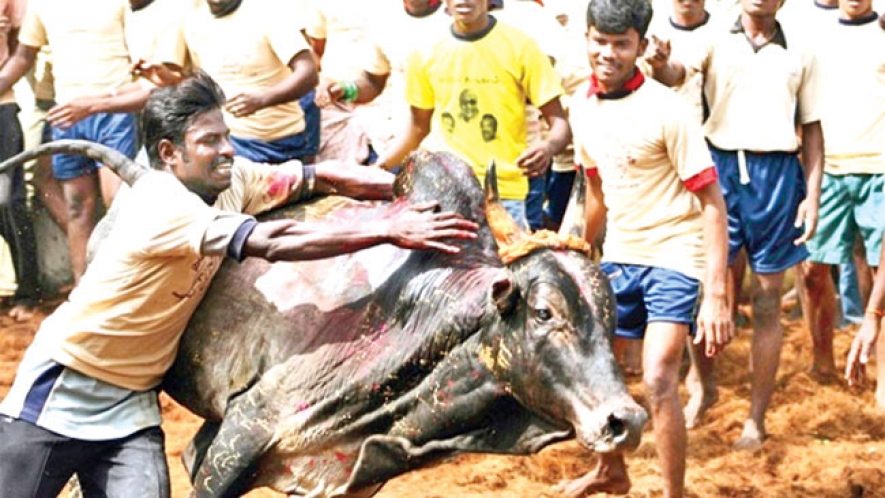A government order said the event, held every January to mark the winter harvest in the southern state of Tamil Nadu, would be allowed to go ahead this year after it was cancelled in 2015.
"Bulls may... continue to be exhibited or trained as a performing animal at events such as Jallikattu in Tamil Nadu," said the order published by the environment ministry on Thursday, using the local name for the event.
In the centuries-old festival of Jallikattu, which means "bull-taming", bulls are let loose and young men compete to subdue them.
The event was cancelled last year for the first time after the previous government imposed a ban citing cruelty.
Unlike in the popular Spanish traditional of bull-fighting, the aim is not to kill the animals. But critics say they are fed liquor and have chili powder thrown into their eyes before they are released from a holding pen and chased by revellers.
There have also been reports of bulls having their horns sharpened with broken glass, while the "taming" can lead to serious injury and a painful death for the animals.
Over the years, dozens of people have also been killed and hundreds more wounded in the event.
The government ordered a ban in 2011 but it was not implemented until 2015 after the Supreme Court had dismissed a slew of legal challenges.
Poorva Joshipura, chief executive of People for the Ethical Treatment of Animals (PETA) in India, said the group would challenge the move.
"We are horrified and aghast over the lifting of ban on Jallikattu when the same government is fighting to protect cows," she told AFP, referring to measures to protect the animals revered by Hindus.
"Terrified bulls are deliberately disoriented through substances like alcohol, stabbed and jabbed by sickles, spears, knives or sticks, punched, jumped on and dragged to the ground in the so-called sport."
The government's decision to lift the ban reportedly followed pressure from local politicians including Tamil Nadu's controversial Chief Minister Jayalalithaa Jayaram ahead of planned protests.
Local media reports said it may have been motivated by upcoming state elections.
- AFP



















